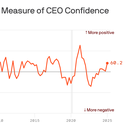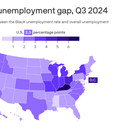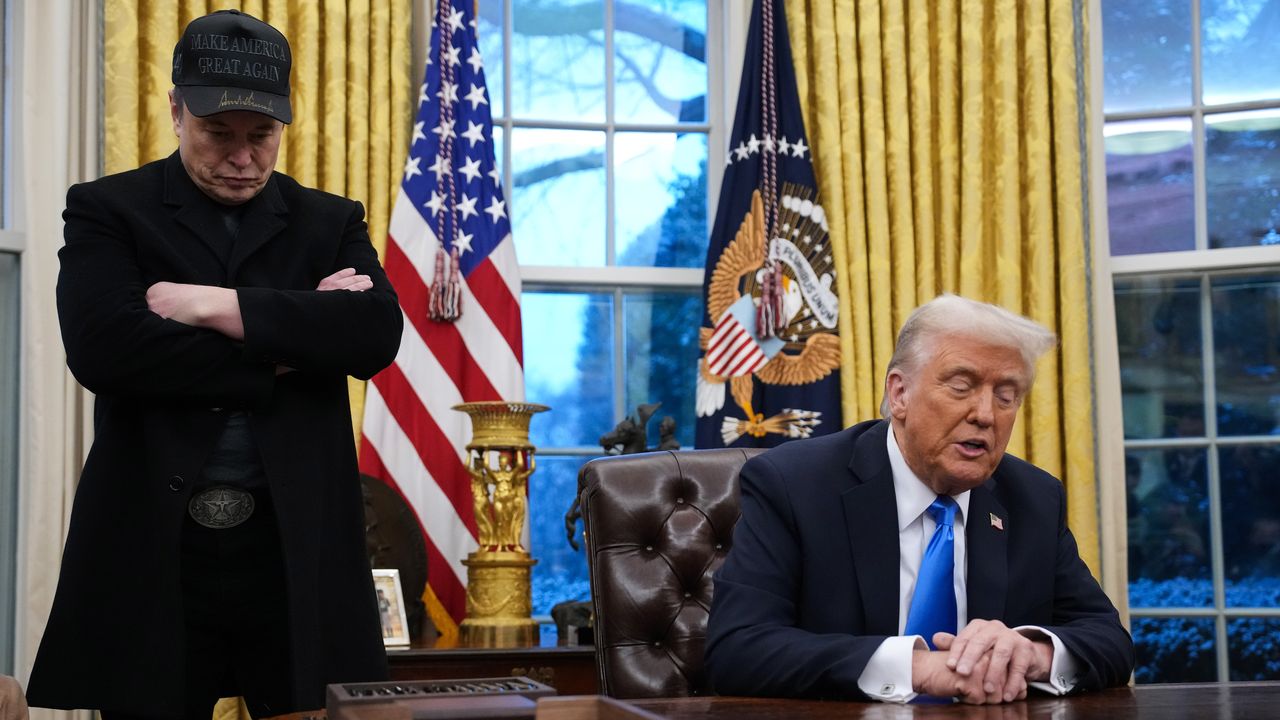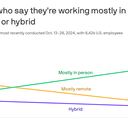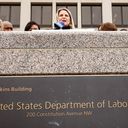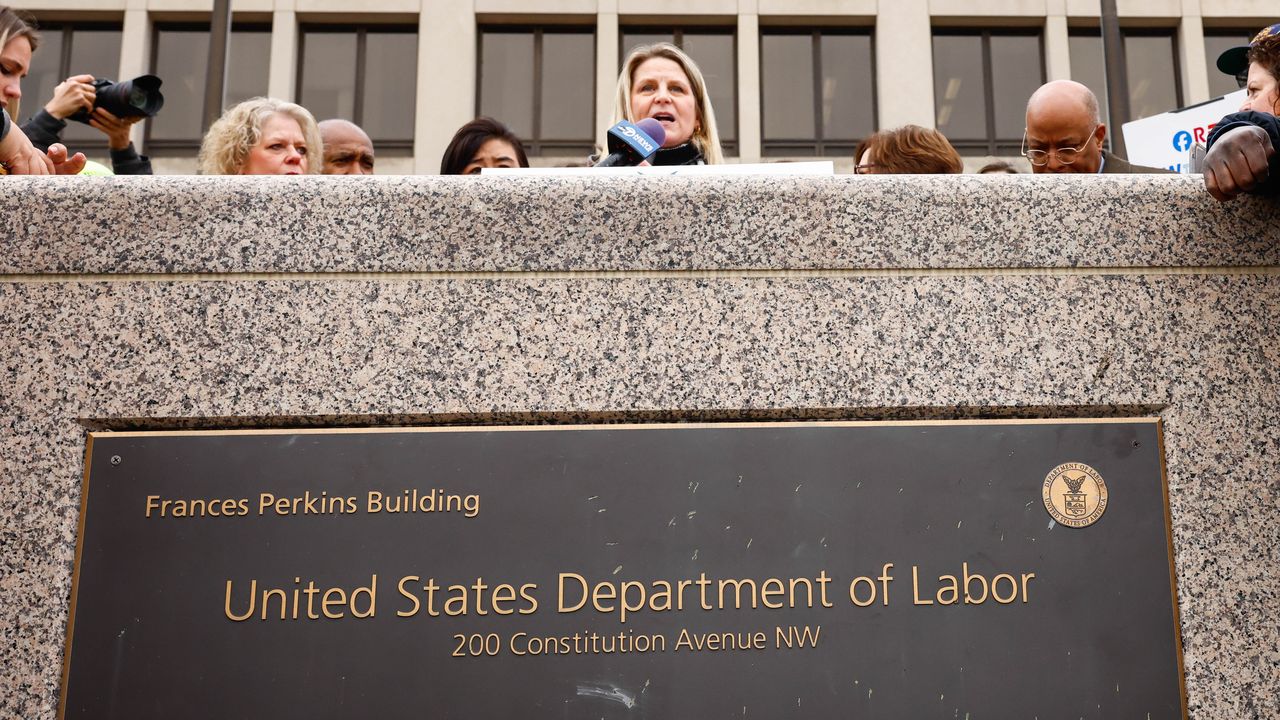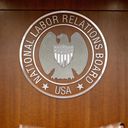Elon Musk's DOGE efforts hit a brick wall
Despite his threats, Elon Musk can't simply fire federal employees for not responding to an email, attorneys and former senior federal officials told Axios.
Why it matters: So far legal barriers haven't stopped Musk's DOGE purge — and he even has President Trump's explicit support in his latest effort — yet Musk may now be bumping up against a harder boundary.
- For the first time, federal agencies appear to be pushing back, and they're getting support from the executive branch, despite what Trump is saying publicly.
The big picture: It's too early to tell if agencies will hold the line and terminate workers for failing to reply to the email, sent from the Office for Personnel Management on Saturday with the subject line "What did you do last week?"
- The deadline to respond was Monday at 11:59 pm EST.
- Still, it's clear that some agency heads — who've been confirmed by the Senate in contrast to Musk's more murky power — are flexing muscle against DOGE, said one former senior OPM official familiar with the agency's workings.
- OPM doesn't actually have the authority to reach into agencies and simply fire workers. That's in agency hands, and with Musk's latest move, "I think you're starting to see some of that tension playing out," the official said.
Late on Monday, OPM issued further guidance making clear that decisions are left to individual agencies, and that the president is not involved in such decisions.
- "It is agency leadership's decision as to what actions are taken," per the memo. "At Counsel's direction, in order to comport with the Presidential Records Act, the Executive Office of the President is exempted from this exercise."
Where it stands: Many federal agencies, including the FBI, the Pentagon and Department of Homeland Security, have already told workers not to respond to the OPM email. Some have explicitly told workers to reply.
- Before the OPM email went out, Musk posted about it on X and said those who didn't respond would be terminated.
- The threat was echoed by Trump on Monday. If employees don't respond, "you're sort of semi-fired or you're fired," he said.
- Musk doubled down Monday night. Responding to a post on X that called for anyone who didn't answer the email to be fired, he wrote: "Subject to the discretion of the President, they will be given another chance. Failure to respond a second time will result in termination."
Yes, but: There are threats and there are actions.
- The email that millions of federal workers received did not actually threaten anyone with termination.
- Perhaps more significantly, even after Trump's comments Monday, an administration official confirmed to Axios that it is up to agencies to decide what steps to take next regarding the "what did you do" email.
- In other words, notwithstanding Musk's threat or Trump's assertion, the federal government's own HR office is effectively saying no one has to face a penalty for not answering.
State of play: "Neither DOGE nor OPM has authority to fire these federal workers," said David Super, a professor at Georgetown Law School whose research focuses on administrative law.
- According to Tamara Slater, a shareholder at Alan Lescht & Associates, a D.C. law firm that represents federal employees, "I"m not aware of any authority that would allow OPM to direct an agency to fire somebody."
Between the lines: Even if agencies follow Musk's guidance, and try to fire employees for not responding, they would likely face challenges defending that move.
- "There are all of these limitations on the reasons why somebody can be fired," Slater said. "The idea that not responding to a single email is going to meet that standard is a legal question."
- It's hard to imagine such a firing would be upheld, she said.
Reality check: "DOGE has proven that it has the political power to force agencies to do pretty much anything that it chooses to do, whether legal or not," Georgetown's Super said.
- And answering the question — what did you do last week — for a lot of workers isn't as simple as you might imagine.
- Super noted that some workers are barred from sharing the details of their work. Certain staffers at the Securities and Exchange Commission aren't supposed to disclose such information to guard against affecting stock prices. Other federal workers are dealing in classified information.
- Privacy and security are also big concerns. "Assume that what you write will be read by malign foreign actors and tailor your response accordingly," Health and Human Services employees were told, per the Washington Post.

/2025/02/25/1740447875926.gif)

/2025/02/24/1740424361649.gif)






